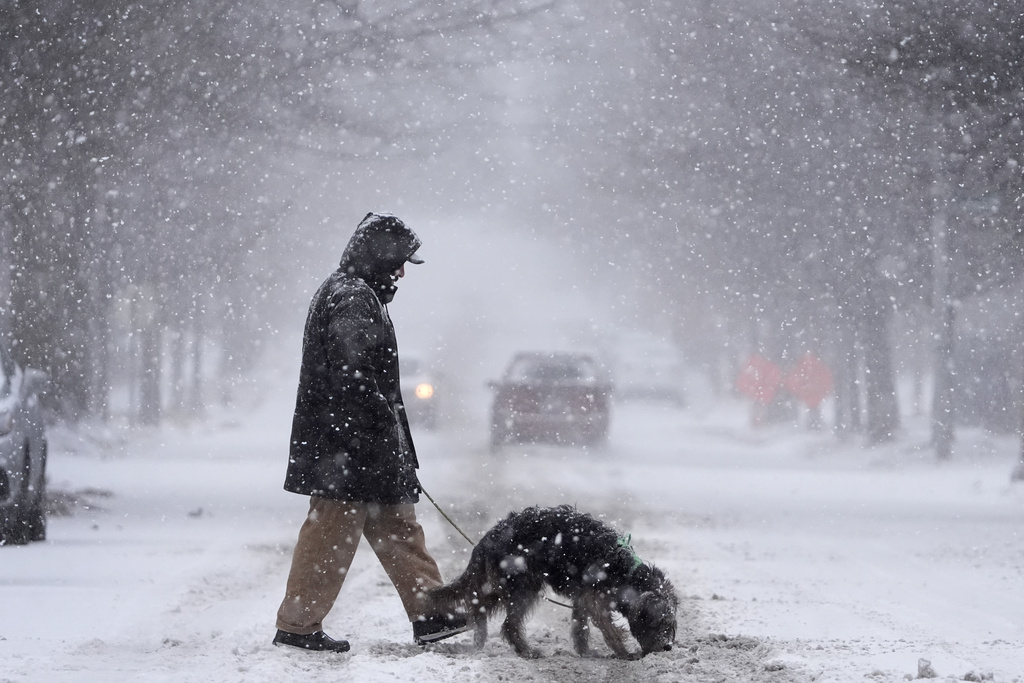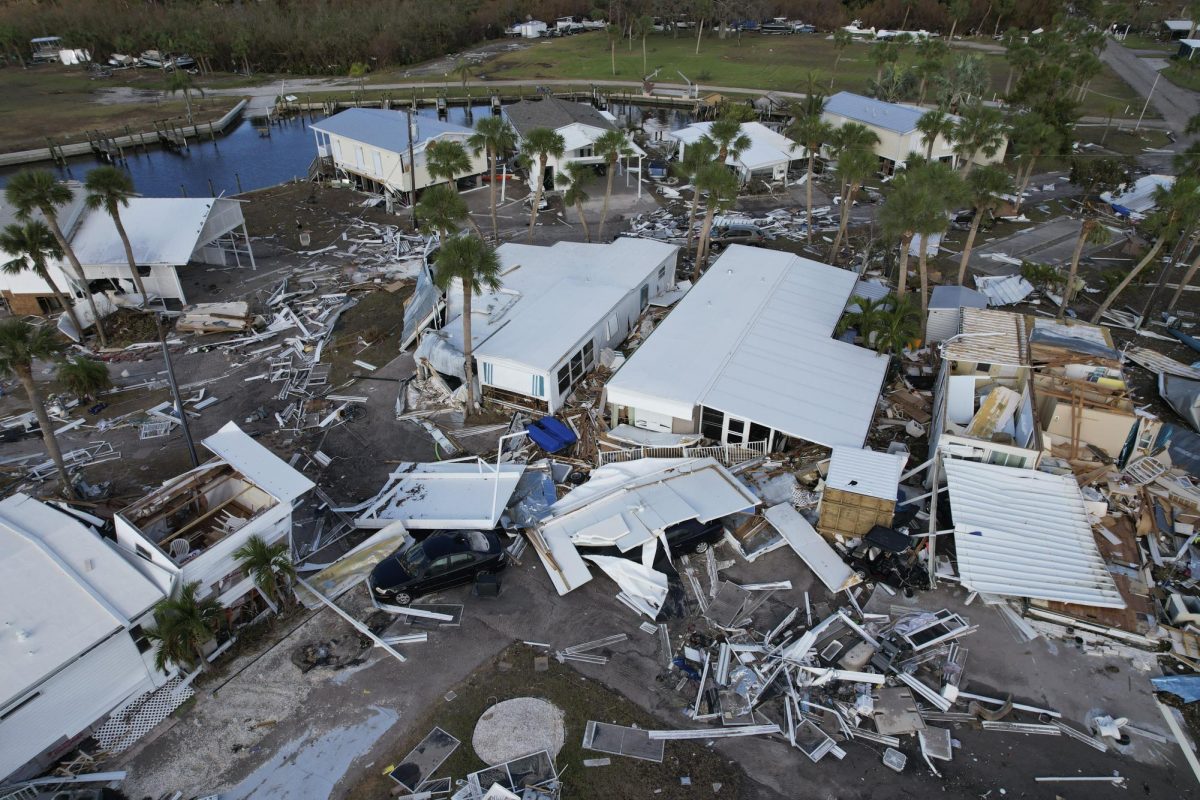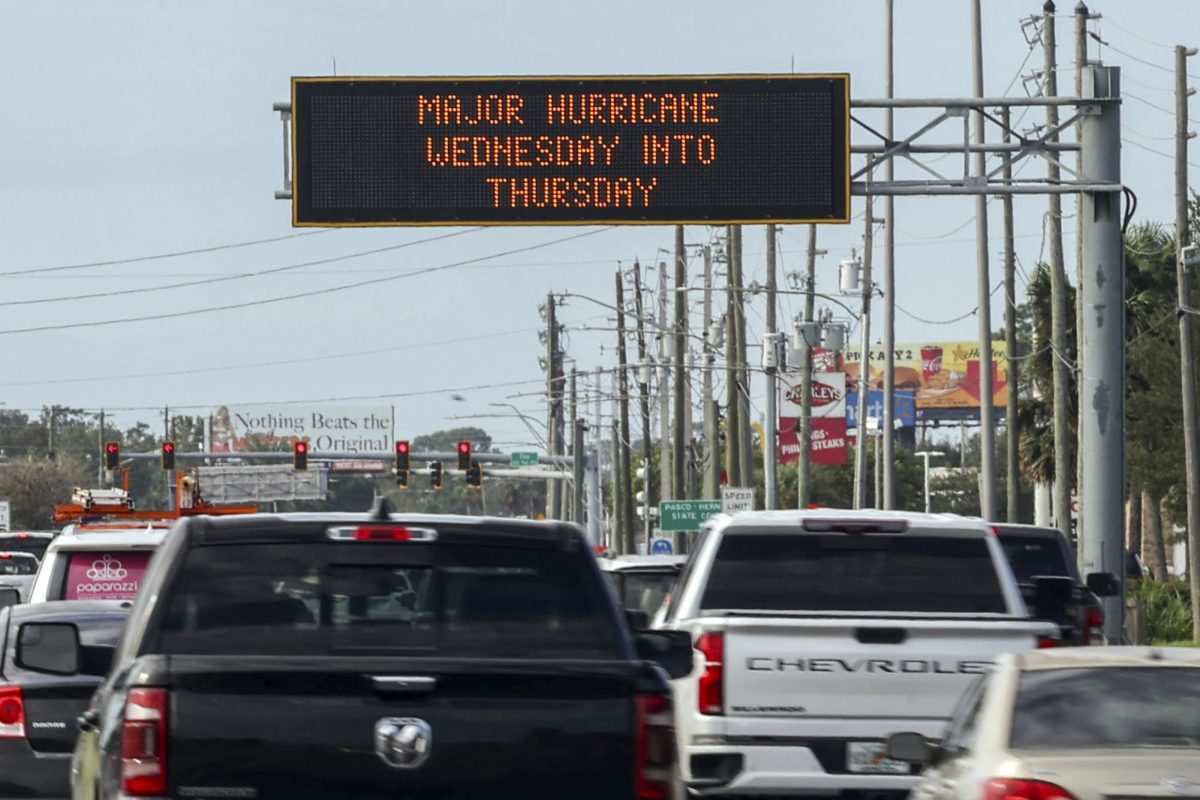The National Oceanic and Atmospheric Administration has predicted above average hurricane conditions this year and with five months left until the season’s end, it’s important for North Florida students to be prepared.
Bob Greenlaw, emergency manager for the University of North Florida, said the university monitors hurricanes several days in advance and stays in contact with the National Weather Service and National Hurricane Center to stay up to date on weather information.
UNF has comprehensive plans in place to protect students during hurricane season. These include designated on-campus shelters, detailed emergency protocols, and efforts to encourage students to review safety guides—all part of the university’s broader hurricane preparedness strategy, according to Greenlaw.
“Should [a storm] look like it’ll strike Jacksonville, we convene the crisis management team and coordinate with the city to determine their plans for other schools,” Greenlaw said. “We always err on the side of caution.”
On campus, the Fountains residence hall is ready to shelter students during a hurricane and can withstand up to a Category 2 storm. If a Category 3 or stronger storm is expected to hit the area, the university has plans to move and shelter students elsewhere, according to Greenlaw. UNF is a storm-rated university and has plans in place to protect students, as well as provide emergency food and services if needed.
“We’re a storm-rated university and are well prepared to execute emergency plans,” Greenlaw said.
In October, Hurricane Milton devastated parts of Florida’s Gulf Coast and weakened from a Category 2 hurricane to a tropical storm as it passed through Jacksonville. Florida also saw major damage and flooding from storms Helene and Debby.
“As we witnessed last year with significant inland flooding from hurricanes Helene and Debby, the impacts of hurricanes can reach far beyond coastal communities,” said Acting NOAA Administrator Laura Grimm in a May National Weather Service news release. “NOAA is critical for the delivery of early and accurate forecasts and warnings, and provides the scientific expertise needed to save lives and property.”
Greenlaw encourages students to look at UNF’s Tropical Storm Preparedness guide as well as JaxReady for extensive guides on how to prepare for hurricane season.
UNF student hurricane preparations
To stay safe during severe weather, students are encouraged to take a few key steps before a storm. Whether you’re sheltering on campus or preparing to evacuate, here’s a checklist to help you get ready, according to UNF’s Tropical Storm Preparedness guide.
- Notify family where you will be for the duration of the storm.
- Take measures to protect personal possessions that are left behind in rooms/apartments during a storm. Personal items should be moved away from windows and taken off the floor.
- Make copies of all of your important electronic files
- Valuables should be placed in safekeeping.
- All windows must be closed tightly and locked.
- All doors should be locked when you leave your room or apartment.
- Each student should provide his/her flashlight in case of power failure.
- Make sure you have enough cash to last you a few days.
- Make sure you have an adequate supply of any prescription medications.
- Fully charge cell phones, portable chargers, laptops, and any other battery-powered items.
- Report all accidents, injuries, broken windows, or excessive water to Housing staff.
- Before the storm, stock up on non-perishable food and water.
- If you go to a shelter, bring the following personal items:
- Bedding (pillow/blankets)
- Several changes of clothing
- Medication that may be needed during your stay
- Personal hygiene items
- Books/Cards/Games
- Flashlights/Batteries
- Snacks (food options may be limited)
Tropical weather alerts
When it comes to tropical weather alerts, it’s important to know the difference between a storm watch and a storm warning.
WATCH: Be Prepared
A weather watch means be prepared. According to JaxReady, areas under weather watches could see tropical storm or hurricane conditions within 48 hours.
What to do
- Stay alert for updates
- Review emergency supplies
- Collect any items you may need in case of a power outage
WARNING: Take Action
A weather warning means it’s time to take action. According to JaxReady, areas under weather warnings could see tropical storm or hurricane conditions within 36 hours.
What to do
- Finalize storm preparations
- Evacuate if instructed by local officials
Before a storm
Before a storm hits, it’s especially important for North Florida residents to understand the area’s heightened flood risk and to consider key questions when making safety plans.
Understand your flood risk
Flooding is the most frequent natural disaster in the United States, according to the Department of Homeland Security. Because of its low-lying areas, the St. Johns River, and other waterways, Duval County is at constant risk of flooding, even when a tropical cyclone isn’t impacting the area, according to JaxReady.
Students can use the FEMA Flood Map Service Center and the City of Jacksonville’s Geographic Information System to better understand their flood risk before a storm hits. These tools allow users to view detailed maps that highlight flood zones, evacuation routes, and elevation levels in specific areas.
Plan to be safe
Planning ahead is the best way to stay safe from disasters. Below are some things to consider, according to JaxReady.
- Who is your out-of-town contact?
- Have you shared your plan with others?
- What is your escape plan?
- Where will you meet?
- How will you communicate with your family in the event of an emergency?
- After a Storm
Once the storm has passed, it’s important to stay cautious and take steps to protect yourself from lingering hazards. Here are a few safety tips to keep in mind after a hurricane or severe weather event, according to JaxReady.
- Avoid Driving: If you evacuated, wait for public officials to announce that it is safe before you return home.
- Avoid Floodwaters: Avoid flood waters as they may be electrically charged, contain dangerous debris, or be covering places where the ground has washed away.
- Protect Yourself: Wear appropriate protective gear to shield yourself from debris and airborne hazards.
- Avoid Electrical Equipment: Do not use electrical equipment if it is wet or if you are standing in water.
___
For more information or news tips, or if you see an error in this story or have any compliments or concerns, contact editor@unfspinnaker.com.


















